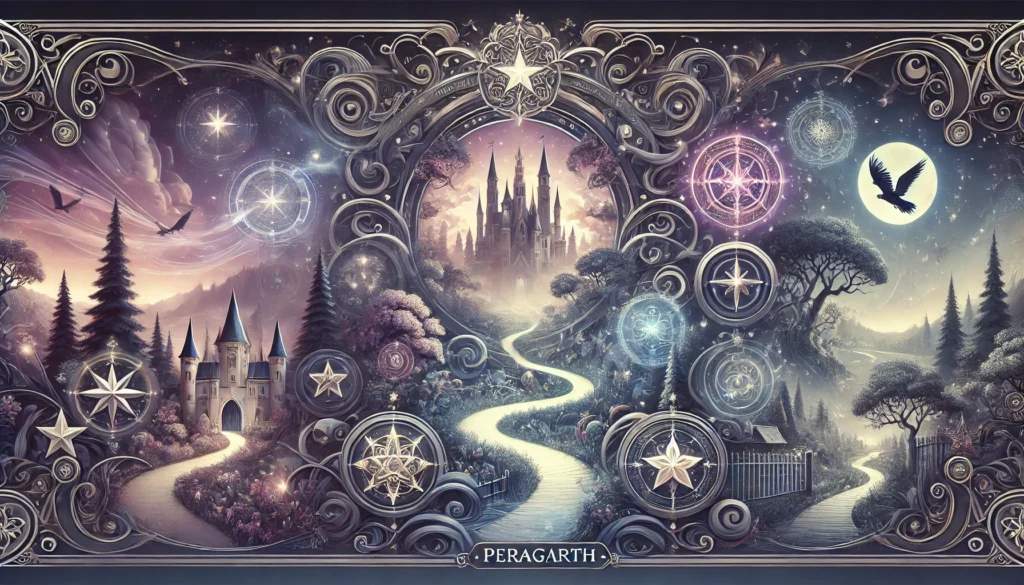Introduction to Peragarth
Peragarth is not just a name; it’s an experience, a place where history, culture, and natural beauty intertwine. If you’re looking for a destination that offers something beyond the ordinary, Peragarth is the hidden gem waiting to be uncovered. Nestled in a unique landscape, this locale blends centuries-old traditions with a vibrant modern atmosphere. This article explores the intriguing facets of Peragarth, from its rich history to its lush landscapes and unique culture. Whether you’re planning a visit or just curious, there’s much to discover in Peragarth.
The Rich History of Peragarth
Peragarth’s story dates back centuries, playing a crucial role in trade, politics, and cultural exchange. Ancient records reveal that this region once served as a vital crossroads between diverse civilizations. Over the years, it was shaped by numerous empires, each leaving an indelible mark on its architecture, language, and traditions.
During the medieval era, Peragarth thrived as a significant trading hub, connecting merchants from the East and West. The old city center still boasts cobblestone streets lined with structures that tell stories of its glorious past. Today, these preserved historical sites are a testament to the resilience and rich heritage of Peragarth’s people.
Geography and Climate: The Landscape of Peragarth
The geography of Peragarth is diverse and captivating. From rolling hills to sprawling coastlines, this place has a bit of everything. To the west, you’ll find towering cliffs overlooking the crystal-clear sea, perfect for those seeking adventure and breathtaking views. Meanwhile, the central regions are dominated by lush valleys and ancient forests, ideal for hiking and nature exploration.
Peragarth’s climate varies significantly across its regions. Coastal areas enjoy mild temperatures year-round with refreshing sea breezes, while the inland regions experience more defined seasonal changes. During the summer, the central valleys bask in the warmth of the sun, making it the perfect time to explore the scenic beauty of this place.
The People and Their Culture
The people of Peragarth are known for their warmth and hospitality. The local community values tradition while embracing modernity, creating a unique cultural blend. Festivals in Peragarth are colorful and lively, often featuring traditional dances, folk music, and local crafts.
Craftsmanship is a big part of Peragarth’s culture. Local artisans are skilled in making handmade textiles, pottery, and intricate woodwork. These crafts reflect the history and stories passed down through generations. Sharing a meal with the locals is also a great way to connect with the culture. Traditional dishes, often cooked with regional ingredients, offer an authentic taste of Peragarth’s culinary heritage.
Peragarth’s Culinary Delights and Food Culture
No visit to Peragarth is complete without indulging in its culinary delights. The region’s cuisine is characterized by its use of fresh, locally-sourced ingredients and a blend of traditional recipes passed down through generations. Dishes are simple yet flavorful, focusing on bringing out the natural taste of the produce.
Street food is also a highlight in Peragarth. Small stalls line the city streets, offering snacks and delicacies that are both unique and delicious. Be sure to try the popular street dish, “Faril,” a savory pastry stuffed with seasonal vegetables and herbs.
Flora and Fauna of Peragarth
The flora and fauna of Peragarth are as diverse as its geography. The coastal areas are home to unique marine life, while the inland forests host a variety of flora and fauna that thrive in the region’s diverse climate. You might come across the native “Peragarth Bluebird,” known for its vibrant plumage, or the “Golden Lotus,” a flower that only blooms during the monsoon season.
Nature enthusiasts can explore the Peragarth Wildlife Sanctuary, where guided tours offer a closer look at the region’s biodiversity. This sanctuary plays a crucial role in preserving the native species and their natural habitats.
Myths and Legends: Stories Passed Down Through Generations
Peragarth is a land steeped in myths and legends. One of the most famous is the tale of the “Golden Fawn,” a mythical creature believed to bring good fortune to those who catch a glimpse of it in the early dawn. Stories of ancient warriors, legendary kings, and powerful sorcerers are still recited by the elders, keeping the spirit of Peragarth’s history alive.
These legends are not just stories but a reflection of the values and beliefs of the people. They continue to be an essential part of the region’s cultural identity, providing insights into its ancient traditions.
The Arts and Crafts of Peragarth
Art and craftsmanship hold a special place in Peragarth’s culture. The region is known for its detailed pottery, intricate embroidery, and beautiful hand-woven rugs. Artisans here use age-old techniques to create pieces that are both functional and artistic.
The Peragarth Cultural Center showcases these crafts, offering visitors a chance to learn about their history and significance. It also hosts workshops for those interested in experiencing the traditional art forms firsthand.
Popular Attractions and Hidden Gems
Peragarth has something to offer every traveler. Some of the must-visit attractions include:
- The Ancient Temple of Eldoria – Known for its stunning architecture and serene atmosphere.
- Lake Mirath – A perfect spot for a peaceful boat ride or picnic.
- The Whispering Caves – A guided tour reveals geological wonders and local folklore.
- The Night Market – Offering delicious street food and handmade crafts.
For those looking to explore beyond the well-trodden path, the hidden trails of the northern mountains or the secluded beaches along the eastern coast are worth discovering.
Tips for Traveling to Peragarth
When visiting Peragarth, it’s essential to be prepared. Here are some tips to help you make the most of your trip:
- Plan Ahead: Research local customs and traditions to immerse yourself in the culture.
- Pack Smart: Bring comfortable walking shoes and weather-appropriate clothing.
- Learn Basic Phrases: Knowing a few local phrases can help you connect with residents.
- Try the Street Food: Don’t miss the opportunity to taste authentic flavors.
Table of Seasonal Climate in Peragarth
| Season | Temperature Range | Rainfall | Best Activities |
| Spring | 15°C – 25°C | Moderate | Hiking, Cultural Festivals |
| Summer | 20°C – 30°C | Low | Beach Activities, Sightseeing |
| Monsoon | 18°C – 28°C | Heavy | Wildlife Sanctuary, Photography |
| Autumn | 16°C – 26°C | Light | Nature Trails, Temple Visits |
FAQs
What is Peragarth known for?
Peragarth is known for its rich history, diverse culture, stunning landscapes, and vibrant festivals.
What are the popular dishes in Peragarth?
Some popular dishes include “Faril,” a savory pastry, and “Mirath Stew,” a slow-cooked dish with local herbs and vegetables.
When is the best time to visit Peragarth?
The best time to visit is during the spring or autumn months when the weather is mild and perfect for exploring.
How do I reach Peragarth?
Peragarth is accessible by road, with well-connected highways and frequent bus services from major cities.
Are there any eco-tourism options in Peragarth?
Yes, Peragarth offers eco-tourism activities like guided nature trails and wildlife sanctuary tours.
Conclusion
Peragarth is a destination that offers a unique blend of history, culture, and natural beauty. From ancient temples and hidden beaches to vibrant festivals and traditional crafts, there’s something for everyone in this enchanting place. Whether you’re a traveler, history enthusiast, or nature lover, Peragarth invites you to explore its many facets and create unforgettable memories.
By immersing yourself in its culture and connecting with its people, you’ll discover that Peragarth is more than just a destination—it’s an experience. So pack your bags and get ready to explore the magic of Peragarth!


